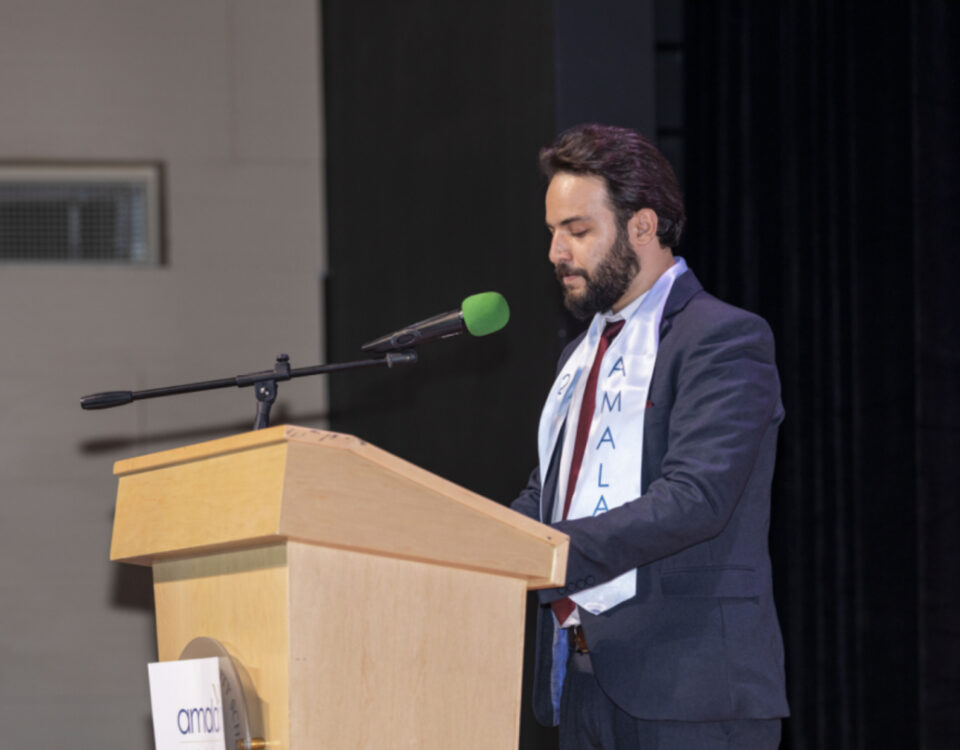Already a member? Log in to the Member Site at members.mastery.org.

From Refugee to Entrepreneur: My Mastery Learning Journey
April 5, 2022
Giving Credit Where It’s Due: Education Reimagined with MTC Learning Record
August 9, 2022Spring 2022: Member Highlights

Though every MTC member school has forged a unique path on its journey to mastery learning, there are common threads that connect their experiences. Clark Street Community School—a charter school in Middleton, Wisconsin, and Oxford Academy—an all-boys boarding school in Westbrook, Connecticut—are at different phases of implementing new learning models. Both school communities have made gains by fostering cultures rooted in more open conversation and feedback about learning and progress at all levels. In addition, they report that the quality of learners’ work has held steady and even improved throughout the pandemic.
Clark Street Community School
Middleton, Wisconsin, Public Charter
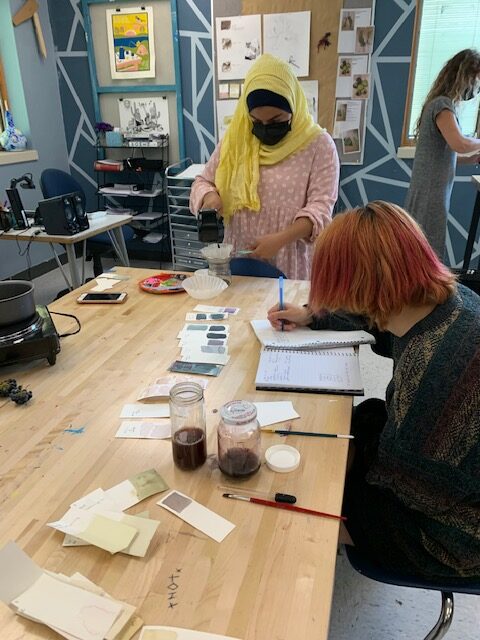
Clark Street Community School (CSCS) is now in its tenth year of implementing a mastery-based model. The school’s mission is to democratically cultivate a community of engaged learners, and to serve as a resource for educators and a catalyst for reform in education. CSCS involves all community members in creating and maintaining an engaged learning environment through youth-adult partnerships and a shared decision-making model. Its portfolio and competency-based instructional model ensures that all graduates can consistently produce high quality work across all academic content standards by applying skills in these areas: reading analysis of fiction and nonfiction; informational, argumentative, narrative and technical writing; math modeling; research; and public speaking.
Students participate in a variety of interdisciplinary seminars that change on a quarterly basis. Through the creation of artifacts in these seminars and in independently designed learning experiences, students demonstrate mastery over time within the school’s mastery credit areas. The benefits of the hands-on learning that CSCS encourages in and out of school extend beyond its campus. Youth routinely explore their community and the world around them to learn to reflect, implement feedback, and engage public audiences. CSCS seeks to continuously help students see that learning happens all of the time and everywhere.
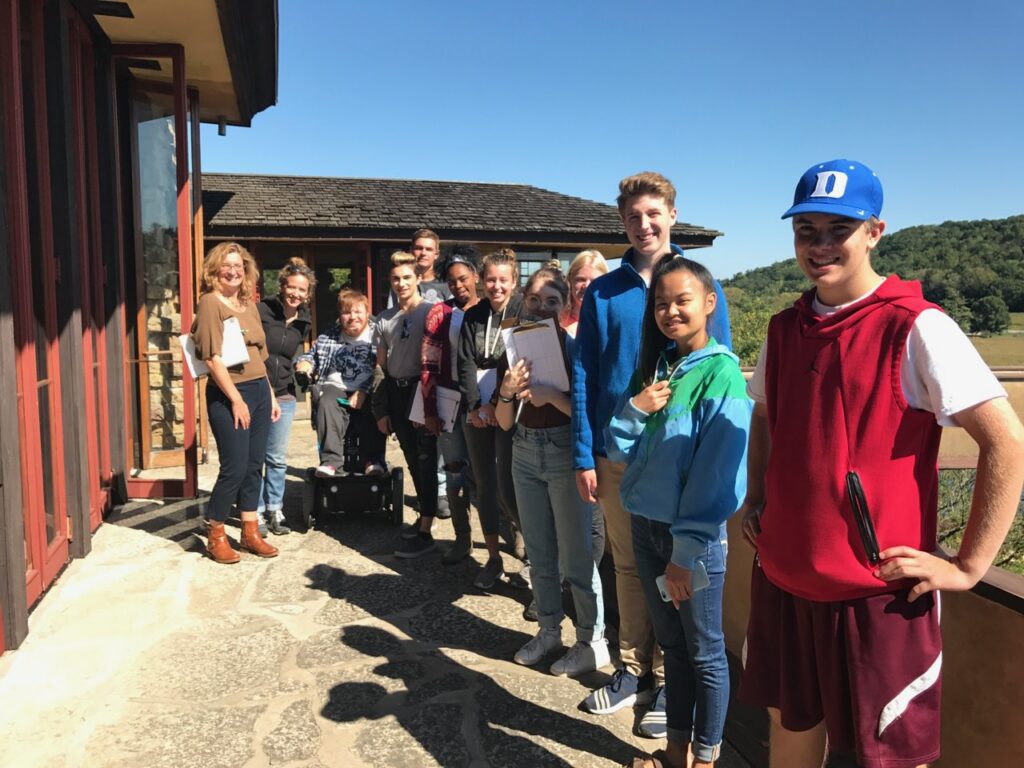
Over the past two years, all of Clark Street’s graduates have applied for postsecondary study using the Mastery Transcript. The school continues to integrate into school operations the steps needed to build and curate Mastery Transcripts, and to deepen the understanding of all students, staff, and families about the possibilities afforded by this transcript. Simultaneously, as a lighthouse school within the Middleton-Cross Plains Area School District, CSCS strives to be a resource to other schools and educators as they pursue mastery learning. Notably, CSCS’ experience has recently informed the district’s development of a Graduate Profile.
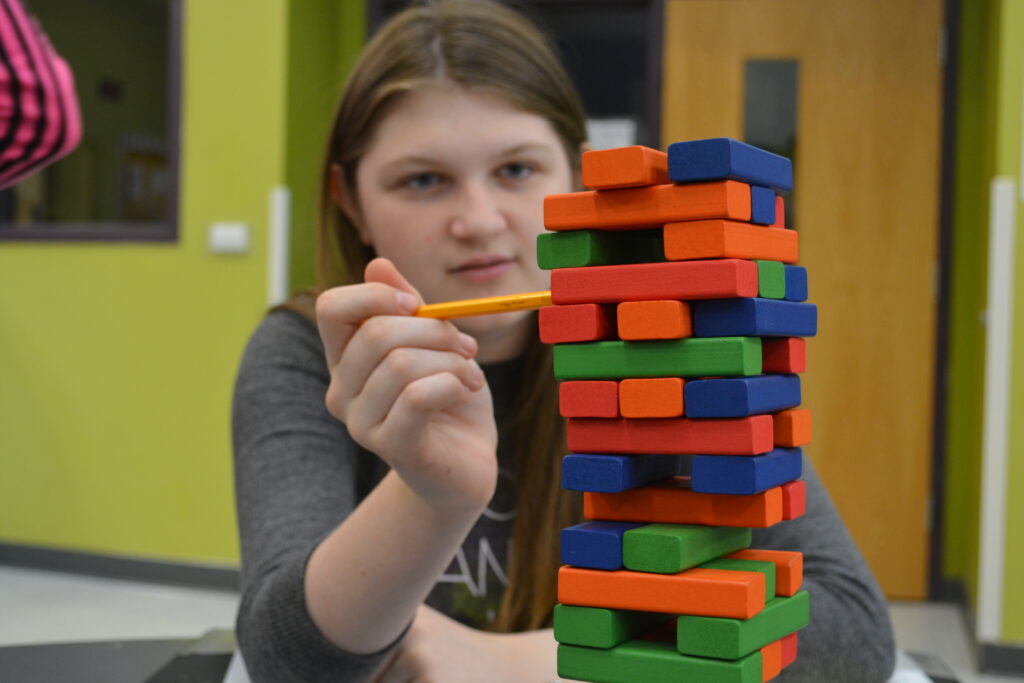
The positive outcomes resulting from the CSCS learning model have helped bolster community support and propel momentum for broader educational change. CSCS is diligent about surveys and data collection, and its alumni regularly report that they are better prepared for success in their postsecondary life. Moreover, CSCS parents and caregivers report distinct changes in the nature of their conversations with children about what and how they are learning. Principal Jill Gurtner is proud to note that “rather than…conversations about work completion and letter grades, families [have begun] talking about what students are reading and/or learning and how that connects to things happening in their lives.” In addition, she relayed that—though forty percent of CSCS students qualify for special education services or accommodations—the overall quality of work produced has continued to advance every year.

Clark Street’s clear focus on learning and iterating to produce high quality work that matters is making a true difference for its students. Gurtner shared that, when using the Mastery Transcript for the first time, “…students were so excited to see their work displayed for colleges, employers and even themselves in such a meaningful way. It generated a deep sense of pride and joy as a culmination of their experiences as a CSCS student.”
| Mastery Learning Year 9 | Journey Phase 5 [Sustainability] | Focus: Restoration & Social Awareness |
Oxford Academy
Westbrook, Connecticut, Independent/Boarding
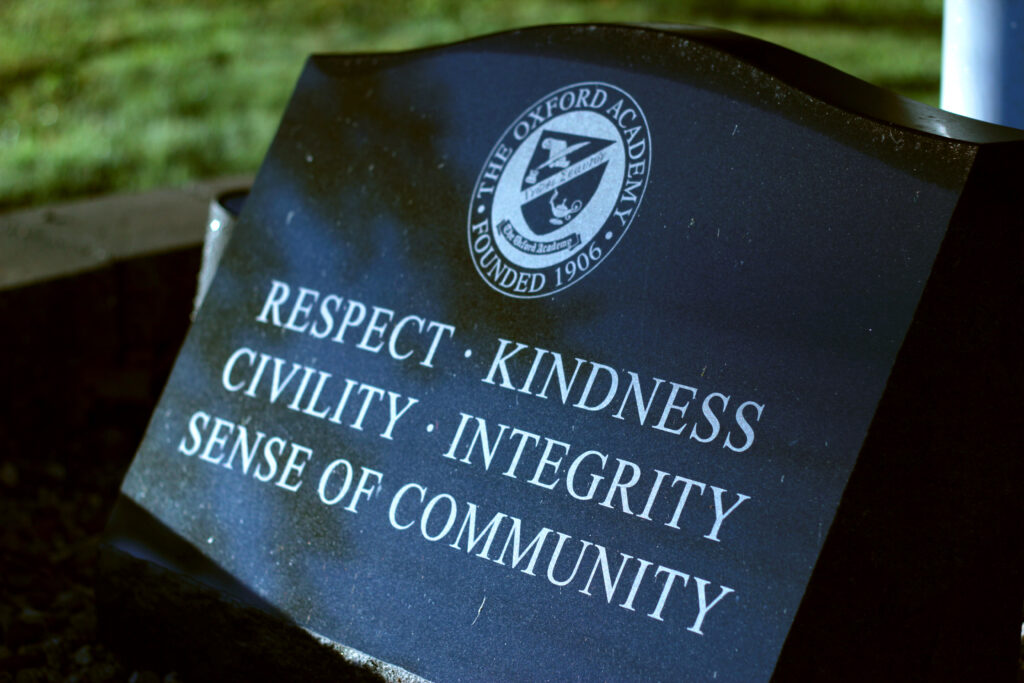
Oxford Academy offers an Individualized Instruction model where the curriculum is customized based on a students’ interest, knowledge, and skills. Day-to-day conversations between a student and his teachers are at the heart of the curriculum; each student works at his own pace and coursework is adapted accordingly. According to Dean of Studies, Marti White, “Because we work with our students one-to-one, we have always focused on students’ individual development, recognizing that one size does not fit all. In around 2010, we set out to create a curriculum that focused more on standards, and would develop not just academic skills, but also habits of mind and character.”
Now in its second year of using subject-area Competencies and Continua adopted from Building 21 (also an MTC member), Oxford is doing work in both the Learning Model phase (“How will learning and teaching need to change?”) and the Alignment phase (“How do school culture, instruction, and structure function to support your learning model?”) of MTC’s Journey to Mastery Learning framework. To facilitate progress, the Oxford team developed its own transcript to serve “as a bridge to the MTC transcript.” White described, “This is a two-page document that shows both the courses a student has taken, and his progress towards mastering the competencies. We have [also] started a student portfolio where students choose and reflect on pieces of work that demonstrate their progress.”

As Oxford evolves its competency-based model, the school is beginning to iterate its approach to grading. In addition to assessing a students’ demonstration of Habits of Success, educators will begin to evaluate the quality of students’ work on a four-point scale. The school hopes to implement these assessment practices “in a way that keeps the focus on progress rather than the grade.” As part of this effort, the school aims to monitor the consistency with which students and faculty use these new tools and procedures to track progress.
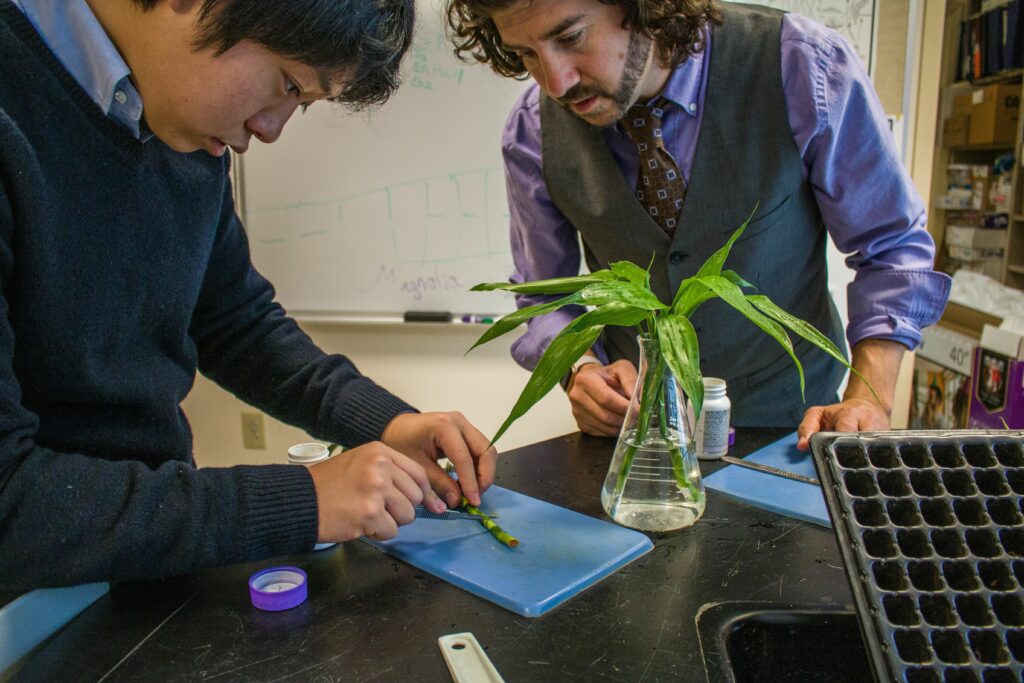
In reflecting on the school’s implementation of this new learning model, Oxford’s leadership notes that adopting a competency-based framework has given faculty and students a shared language that is explicit and accessible, “making it easier to talk about and assess progress towards mastery.” White shared that this framework has inspired her team to carve out more time to build on these strengthened communication channels to realize deeper understanding among all constituents, including parents.
The feedback culture core to effective mastery learning has helped Oxford learners to reflect on and communicate about their individual progress better with teachers. According to White, prior to the adoption of a competency-based model, most students did not take well to feedback: some perceived written comments as stressful, and grading practices inconsistent and unfair from one teacher to the next. Now, weekly reporting on Habits of Success and Quality of Work instead of grades keeps learners focused on growth, progress, and improvement.

As an early adopter of a competency-based approach, Oxford Academy’s team takes pride in the fact that there was little disruption to schooling and the sustenance of the school’s identity during the pandemic. Oxford was able to sustain a positive trajectory of student progress; educators witnessed that learners consistently worked hard, remained motivated, and produced high quality work.
Likewise, MTC’s community of practice has helped Oxford itself sustain forward momentum over time. According to White, since discovering the consortium in 2017, “MTC [has given] us the resources to move forward with confidence and establish ourselves as a competency-based school.”
| Mastery Learning Year 11 | Journey Phase 4 [Alignment] | Focus: Environment & Stamina |




